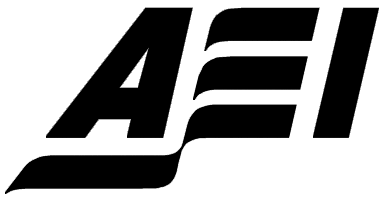Under the leadership of President Clinton and Commissioner David Kessler, the Food and Drug Administration is waging a tough and very public war on teenage smoking. Meanwhile, the same FDA has quietly made every effort to suppress a simple product that could help parents who fear their kids are using illegal drugs. Relying on the most tendentious bureaucratic reasoning, the agency has fought to keep off the market mail-order kits parents use at home to test their children for drugs. The FDA doesn’t claim that the kits are unsafe or ineffective — the same tests are routinely used by hospitals, employers and parole officers — but that families can’t be trusted to handle the results.
Two years ago Sunny L. Cloud, a Marietta, Ga., single mother of two, started marketing a service called Parent’s Alert At Home Drug Testing. Ms. Cloud sold kits consisting of FDA-approved drug-testing materials — a cup to catch urine and two strips for blotting saliva — and a preaddressed mailer. Parents who purchase the kit send a urine or saliva sample to a lab using a code number. If the results are positive, the lab retests the sample, and a pediatric physician is available for consultation at Parent’s Alert’s 800 number.
In April 1995, a year after Ms. Cloud went into business, an FDA inspector declared her company a “manufacturer” of a medical “device.” In June an official warning letter arrived, informing Ms. Cloud that her product required premarket FDA approval — never mind that she was merely selling FDA-approved supplies — or else her firm would be subject to seizure, injunction or civil penalties. “All I do is put two strips and a plastic cup in a box, but to them this is a Class III device. They are subjecting me to the same kinds of controls that makers of CAT scans and pacemakers must meet,” Ms. Cloud says.
For 15 months Ms. Cloud, her lawyers and her congressmen have sought an explanation from the FDA, but the agency has ignored their queries. Today the FDA will finally be forced to account, as the House Commerce Committee holds hearings on regulation of home drug-testing kits.
Also testifying will be a representative of the Psychemedics Corporation, which sells a similar service that tests hair samples rather than urine or saliva. Like Ms. Cloud, Psychemedics received an FDA warning letter, claiming the envelope used for mailing the hair to the lab was a medical device requiring FDA approval. Psychemedics took the FDA to court, and the agency backed down. But Parent’s Alert, which can’t afford to wage a court battle, continues to operate under a regulatory cloud.
Why is the agency so zealous in its efforts to wipe out home drug testing? Because, quite simply, Dr. Kessler’s FDA doesn’t trust parents. It fears that the home tests will have “adverse consequences for the parent/child relationship,” according to an internal FDA memo.
I asked Susan Alpert, director of the FDA’s Office of Device Evaluation, to explain the FDA’s objections to services like Parent’s Alert. “What if the child didn’t deposit his urine specimen correctly or lick the saliva strip properly?” she said. “What if the urine container spilled in transit to the lab?” Fair questions — but Ms. Cloud told me that when she had offered to answer them, the FDA inspector wasn’t interested. Dr. Alpert also told me the agency is troubled by questions of confidentiality — never mind that the anonymous at-home tests, unlike those conducted by a doctor, don’t end up on a child’s permanent medical record.
Dr. Alpert freely admitted that the FDA’s interest in regulating reach goes far beyond technical concerns: “Testing has important social implications. How the information is delivered and the counseling that goes with it are part of the test. We believe that information does have a risk.”
To be sure, home drug testing raises questions about parental authority, child privacy and even psychological harm from insensitive handling of the results by parents. But such questions are none of the FDA’s business. The agency’s statutory mandate is to ensure the safety and efficacy of drugs and medical devices, not to intrude into family relations. “Parents may disagree on whether to use the test, keep it in the closet as a deterrent or maybe just trust their kids — but it’s their decision,” says House Commerce Committee Chairman Thomas J. Bliley Jr. (R., Va.).
Besides, it’s an insult to concerned parents to assume they aren’t sophisticated enough to understand the detailed instructions and caveats that come with Parent’s Alert. Most of those who pay $40 for a test kit are concerned mothers and fathers who want to relieve their aching worry that someone they love is in trouble — or get him help if he needs it. One Pennsylvania mother wrote Ms. Cloud to order a test because “I believe it will be easier for my 16-year-old daughter to say no if she can also say, ‘My mom gives random drug tests.'”
With teenage drug use having doubled during the Clinton administration, it’s appalling that the same FDA that is adamant about keeping cigarettes away from minors is determined to withhold from parents a practical means of protecting their children from illegal drugs. “I’m tired of hearing people like Secretary [Donna] Shalala and General [Barry] McCaffrey say that parents must be empowered,” says Ms. Cloud. “Why won’t the government let us fight back?”

